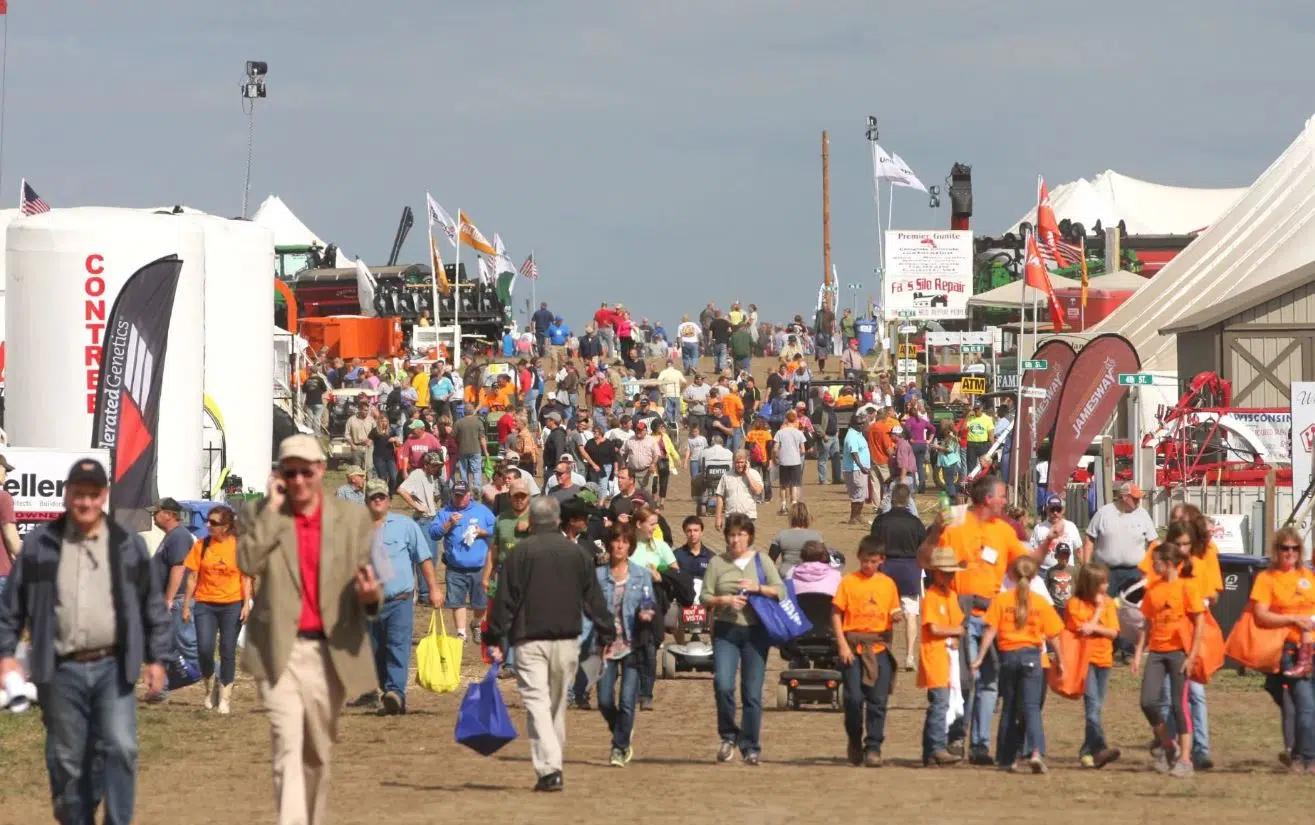
BARABOO, WI (July 5, 2023) – Safe and low-stress cattle management techniques will be front and center in the Beef Tent at Wisconsin Farm Technology Days, July 18–20, at the Badger Steam and Gas Engine Club in Baraboo. These demonstrations are a new event at the show in response to popular demand from farmers across the state who are adding beef cattle to their operations.
While Wisconsin is renowned for its dairy farms and celebrated as America’s dairyland, the number of cattle farms raising beef has grown dramatically in the last 20 years, and now cattle farms outnumber dairy farms in the state. According to the Wisconsin Department of Agriculture, Transportation, and Consumer Protection, there are over 16,000 farms raising beef in the state and 6,000 dairy farms.
“The Wisconsin beef industry has grown dramatically and now contributes more than $2.4B to the state’s economy and is growing at a compound annual growth rate of about 2.5%,” said Dick Hauser, Beef Tent Demonstration Chair for the Baraboo show. “We’ve seen tremendous interest from dairy and crop farmers in adding beef to their operations and have designed a program at Farm Tech Days that will detail how to handle beef cattle safely with low-stress techniques.”
Beef animals, unlike dairy cows, which have essentially been domesticated, have significantly different requirements and behaviors and need to be handled with the correct techniques to keep both farmers and cattle safe. Beef cattle breeds tend to be more robust and less docile and require less intensive management than dairy cows. Also, beef cattle are more often grazed on grassland in comparison to dairy cattle.
“Wisconsin has ideal terrain, native plants and climate to raise beef, particularly with rotational grazing,” added Hauser. “The mixture of flatlands and hills which offer good drainage throughout Wisconsin are ideal for grazing cattle which in turn leads to better land management.”
The Beef Tent will have two low-stress cattle handling demonstrations at 10:30 am and 1:15 pm each day of the show. Attendees are welcome to visit the beef tent all day to talk with the participating cattle farmers, the Wisconsin Beef Council, and Beef Extension Specialists to learn more about performance and care and the benefits of the different breeds popular in Wisconsin.
Eight different breeds will be on display in the beef tent, including Normande, Simmental, Black Angus, Hereford, Highland, Shorthorn, Belted Galloway, and White Parks.
Area farmers participating in the Beef Tent are:
Simmental – KFA Simmentals, Justin Kimball (Seymour, WI)
Highland – Hidden Ridge Highland Cattle, Dennis Breneman & Maureen Matt (Loganville, WI)
Shorthorn – Oakwood Farms, Rick Colby (Wisconsin Dells, WI)
Herford – Pierce’s Herford Haven (Baraboo, WI)
Belted Galloway – Etheridge Farm (Eau Claire, WI)
White Parks – Hockermans Hillview Farm (Westfield, WI)
Normande – Double M Cattle Co. (Rewey, WI)
About Wisconsin Farm Technology Days
Wisconsin Farm Technology Days is a three-day outdoor event showcasing the latest developments in production agriculture, including practical applications and recent research and technological developments. This is the only U.S. farm show of its size organized and run entirely by volunteers. As the largest outdoor agricultural event in the state, it welcomes more than 45,000 attendees and more than 500 commercial and educational vendors. The first WFTD show was named Farm Progress Days and was held in Waupaca County in 1954.
About Agriculture in Sauk County
Agriculture works hard in Sauk Country. Family-owned farms, food processors, and agriculture-related businesses generate thousands of jobs and millions of dollars of economic activity while contributing to local income and tax revenues. Sauk County’s top commodities include milk, grain, cattle, swine, and cropland. There is a strong connection between farmers and consumers, with $1 million of goods sold locally through farmers’ markets, CSAs, and agritourism initiatives. Over 56% of the county’s land is farmland, made up of more than 1,400 farms. Overall, agriculture has a tremendous impact on the county landscape, and the variety of family farms continues to keep agriculture thriving in Sauk County.





Comments